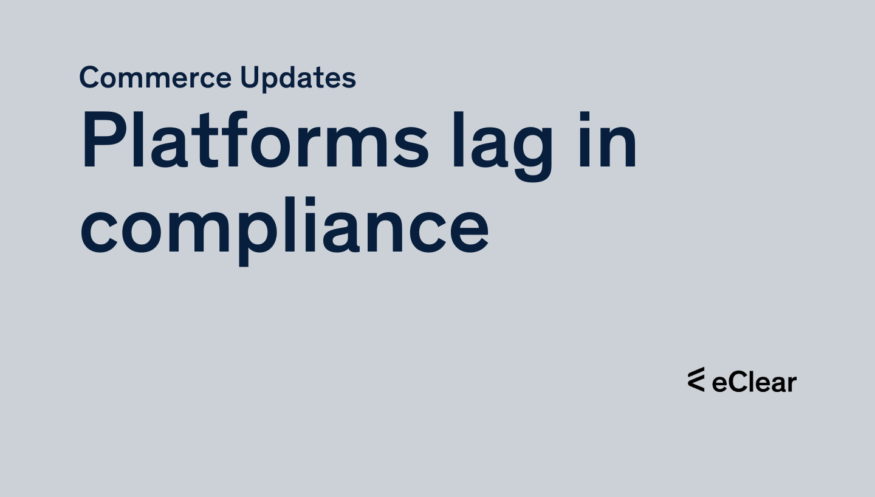The Federation of German Consumer Organisations (vzbv) has investigated major online platforms such as Amazon, Google Search, Zalando and TikTok and found that they still have a lot of catching up to do regarding consumer protection and transparency. Although the EU introduced new due diligence obligations for platform operators with the Digital Services Act (DSA), which has been in force since 25 August, the providers investigated show shortcomings. In particular, there are deficits in the obligation to provide contact details and the transparency of recommendation systems.
Ramona Pop, executive director of the vzbv, criticises that the large providers would have had enough time to implement the new requirements. The vzbv plans further checks and will use the possibility of issuing warnings to companies in case of persistent violations.
The study shows that contact options are available at the providers investigated but not always easily accessible. Furthermore, the recommendation and ranking systems are non-transparent. Only Booking.com offers the possibility to switch off personal recommendations with one click. With other providers, this is more complicated or not possible. The vzbv, therefore, demands more transparency and consumer protection in online commerce.
German trade relies on digital currency

The German Retail Association (HDE) welcomes the plans to introduce a digital euro. Still, it demands clear decisions from the European Commission and the European Central Bank. Ulrich Binnebößel, HDE head of department for payment transactions, sees the digital euro as a potential counterweight to the currently dominant international payment methods. Especially in cross-border trade, the digital currency could offer advantages.
However, the HDE also sees challenges: The digital euro must be accepted by a broad consumer base, and its design should be suitable for all payment cases, including higher amounts and offline use. In addition, the introduction costs for merchants should be acceptable.
The association emphasises the need for simple and low-fee structures. It clarifies that retailers are ready to contribute to the acceptance of the digital euro. However, the decisive factor for success is whether consumer demand justifies the investments of the retail sector. The HDE sees in the digital euro not only a digital form of cash but also the potential for innovative use cases.
DHL: Price increase from October 2023

DHL Parcel announced a price increase for its business customers, which will be implemented in waves from 1 October 2023. The company cites sharply increased personnel costs following the collective wage agreement in March and inflation as reasons for the adjustment. Benjamin Rasch, Head of Marketing at DHL Group’s German mail and parcel division, emphasises that the price adjustments are “unavoidable”. To be transparent, DHL has removed specific price components such as energy and toll costs from the base price and shown them as surcharges.
In addition, DHL Parcel will levy a so-called “peak surcharge” of €0.19 per shipment for the first time in November and December 2023. The price increase only affects national and international DHL parcel shipments for business customers, but not the DHL Express business. The price adjustment does not affect private customers.
Brexit 2.0: UK Tightens Import Rules

The UK government has rolled out an ambitious new Border Target Operating Model, set to be fully operational by October 2024, as part of its 2025 Border Strategy. Published on 29 August 2023, the model introduces a comprehensive set of controls to bolster national security and biosecurity. For the first time since Brexit, the UK will implement controls on imports from the European Union while simplifying import controls on goods from other parts of the world.
The model is designed to protect the UK against various threats, including plant and animal diseases that could impact the agricultural sector and food supply chains. It also aims to limit illegal imports, such as firearms and narcotics. By leveraging data and technology, the government expects to streamline the trading experience for businesses, reducing the required paperwork and data volume, thereby saving an estimated £520 million per year.
In a nod to stakeholder concerns, the government has agreed to a three-month delay for introducing specific sanitary and phytosanitary controls and full customs controls for non-qualifying Northern Ireland goods. These will now be introduced from January 2024. Further controls, including checks on medium-risk animal products and plants from the EU, will be implemented in April 2024. Safety and security declarations for EU imports are slated for October 2024.
The government has also been testing new technologies like distributed ledgers for data sharing, smart seals, and GPS trackers, which could further simplify supply chain processes. Another key feature is the Single Trade Window, a digital platform that aims to simplify and streamline import and export trade processes.
Baroness Neville-Rolfe, Minister of State at the Cabinet Office, emphasised that the new model would “ensure more efficient trading for businesses, protect against biosecurity threats and further crackdown on illegal imports such as firearms and drugs.”
The model has been generally well-received by industry experts. However, they stress that the focus must now be on timely implementation to ensure businesses can adapt to the new digital trade system.
Poland: Shipping costs are taxable

The Polish tax authority KIS has published a new interpretation of the taxation of shipping costs that could have far-reaching implications for e-commerce. An entrepreneur had asked the authority for clarification on whether shipping costs transferred by buyers are subject to VAT. In his view, these costs should not be taxed as they only cover shipping costs.
However, the HIS Directorate pointed out that shipping costs are part of the tax base. Exceptions only apply if the seller acts in the name and on behalf of the buyer and keeps appropriate records. The applicant did not fulfil any of these conditions, so the shipping costs were classified as taxable.
The decision is based on EU Directive 2006/112/EC. It highlights the importance of the power of attorney and representation in the Civil Code. Only if the seller acts in the name and on behalf of the buyer and keeps appropriate records can the shipping costs be excluded from the tax base.
Targeting Shein: AI designs in court

The debate about artificial intelligence (AI) in art and commerce is gaining momentum. Three US designers, Krista Perry, Larissa Martinez and Jay Baron, have now filed a lawsuit against the Chinese company Shein, reports fashionnetwork.com. The accusation: Shein’s AI algorithm allegedly copied their design drafts one-to-one. A precedent could be set, as the plaintiffs are invoking the law to combat organised crime, the so-called Rico Act.
The indictment accuses Shein of exact piracy as integral to her “conception” process. A 52-page document shows that Shein’s AI can identify and copy commercially promising products, potentially increasing the financial damage to the original designers.
The plaintiffs’ lawyers argue that the Rico Act could provide a legal basis to take action against Shein. Originally aimed at organised crime, the Act allows all actors directly or indirectly involved in organised crime to be held accountable.
Shein emphasises that it takes all alleged violations seriously and takes immediate action when complaints are filed.







